Question And Answer
Publications
Articles, publications, books, tools and multimedia features from the U.S. Institute of Peace provide the latest news, analysis, research findings, practitioner guides and reports, all related to the conflict zones and issues that are at the center of the Institute’s work to prevent and reduce violent conflict.
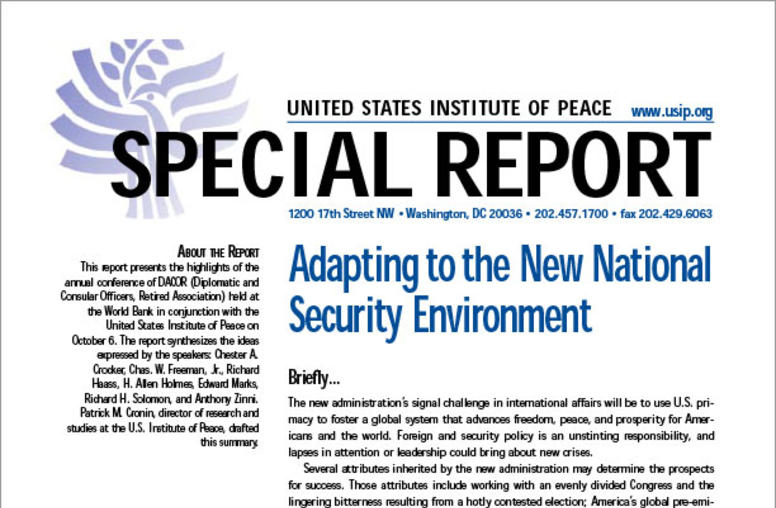
Adapting to the New National Security Environment
Summary The new administration's signal challenge in international affairs will be to use U.S. primacy to foster a global system that advances freedom, peace, and prosperity for Americans and the world. Foreign and security policy is an unstinting responsibility, and lapses in attention or leadership could bring about new crises. Several attributes inherited by the new administration may determine the prospects for success. Those attributes include working with an evenly divided Congres...
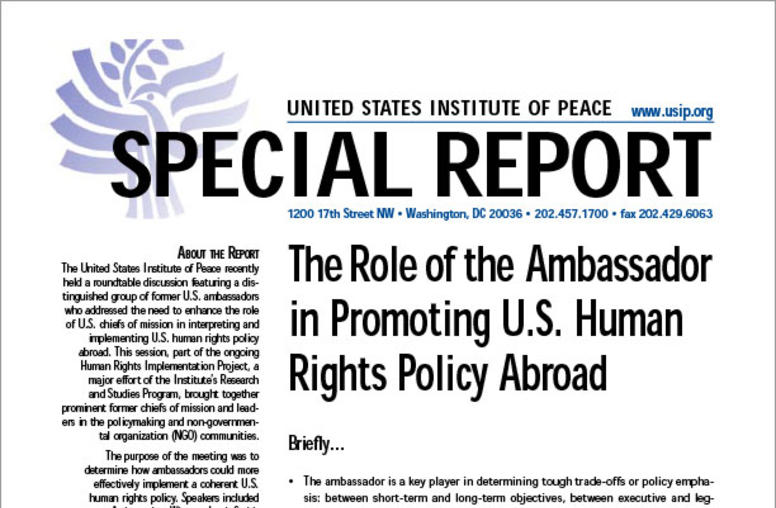
The Role of the Ambassador in Promoting U.S. Human Rights Policy Abroad
Summary The ambassador is a key player in determining tough trade-offs or policy emphasis: between short-term and long-term objectives, between executive and legislative priorities, between strategic interests and specific human rights concerns, between public and private diplomacy, between coercive and cooperative approaches, and between unilateral and multilateral approaches to specific problems.
Truth Commission: Uruguay
Truth Commission: Commission for Peace Duration: 2000 – 2002 Charter: Resolución de la Presidencia de la República No. 858/200 Commissioners: 6 Report: Public report
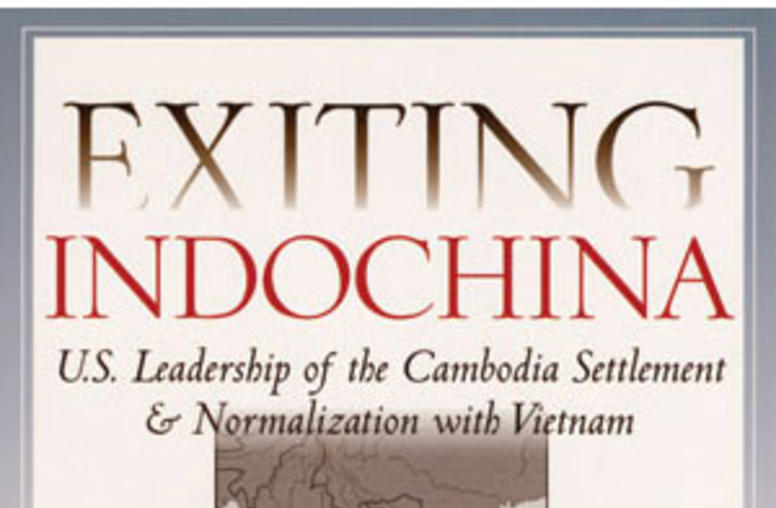
Exiting Indochina
This book recounts the diplomacy that brought an end to great power involvement in Indochina, including the negotiations for a UN peace process in Cambodia and construction of a “road map” for normalizing U.S.-Vietnam relations.
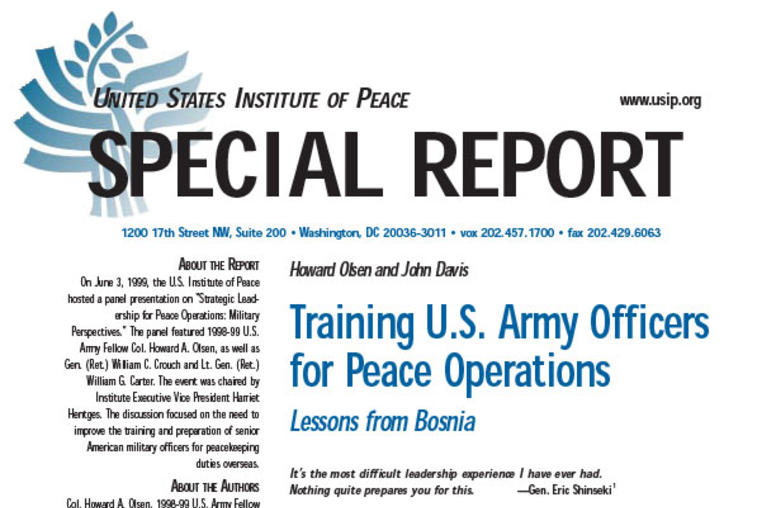
Training U.S. Army Officers for Peace Operations: Lessons from Bosnia
It's the most difficult leadership experience I have ever had. Nothing quite prepares you for this. -- Gen. Eric Shinseki1 Summary National debates fuelled by the recent U.S. military experience in Bosnia produced a series of lessons that range from force protection to civil-military implementation strategies. These lessons can and should inform U.S. military policy toward its present deployment in Kosovo. One of the most important lessons to emerge from the Bosnian experience is ...
Chiapas Web Links
Below are links by topical categories to resources about the conflict in Chiapas from sources mainly active in Mexico. For more USIP resources see Mexico. General Resources Elections and Political Parties Government Agencies Guerrilla Groups Human Rights Maps and Guides Peace Agreements These links complement the Institute Special Report: Southern Mexico: Counterinsurgency and Electoral Politics. General Resources Backg...
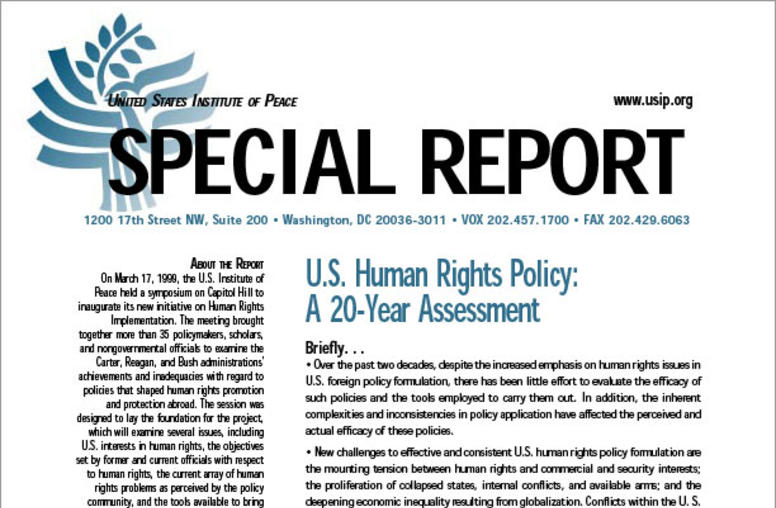
U.S. Human Rights Policy: A 20-Year Assessment
Summary Over the past two decades, despite the increased emphasis on human rights issues in U.S. foreign policy formulation, there has been little effort to evaluate the efficacy of such policies and the tools employed to carry them out. In addition, the inherent complexities and inconsistencies in policy application have affected the perceived and actual efficacy of these policies.
1998-1999 National Winning Essay
Jean Marie Hicks St. Thomas More High School Rapid City, SD “Too little, too late” often in the prevention of violent conflicts holds true (Peck). When the roots of the problem are not identified in time, violence becomes the solution. Preventive diplomacy, one way of avoiding conflicts, can be defined as “action to prevent disputes from arising among parties to prevent existing disputes from escalating into conflicts, and to limit the spread of the latter when they occur” (Boutros-Ghal...
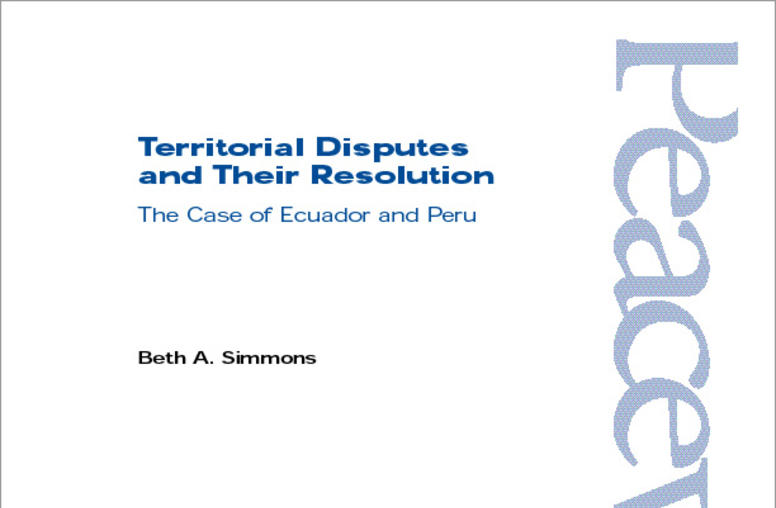
Territorial Disputes and Their Resolution: The Case of Ecuador and Peru
After nearly six decades of sporadic warfare over a relatively small stretch of disputed border, Ecuador and Peru signed an accord on October 26, 1998, that provides a definitive settlement of the remaining issues in their ongoing border conflict. The accord may not spell the end to future territorial disputes in the region, but it is historic in that it involves many actors working over many decades to achieve a settlement to a long-standing dispute.
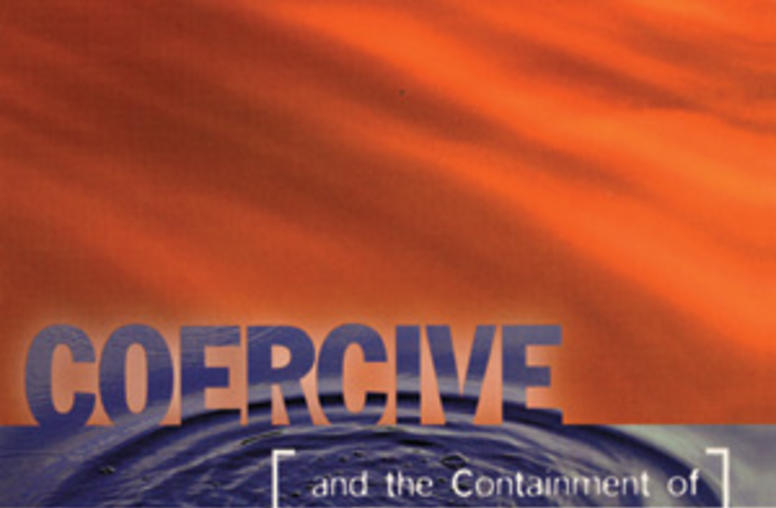
Coercive Inducement and the Containment of International Crises
The concept of a “middle ground” between simple peace enforcement and traditional peacekeeping by lightly armed observers has been both ill defined and controversial. But the authors of this thoughtful yet challenging volume make a strong case for both the practicability and the desirability of such operations